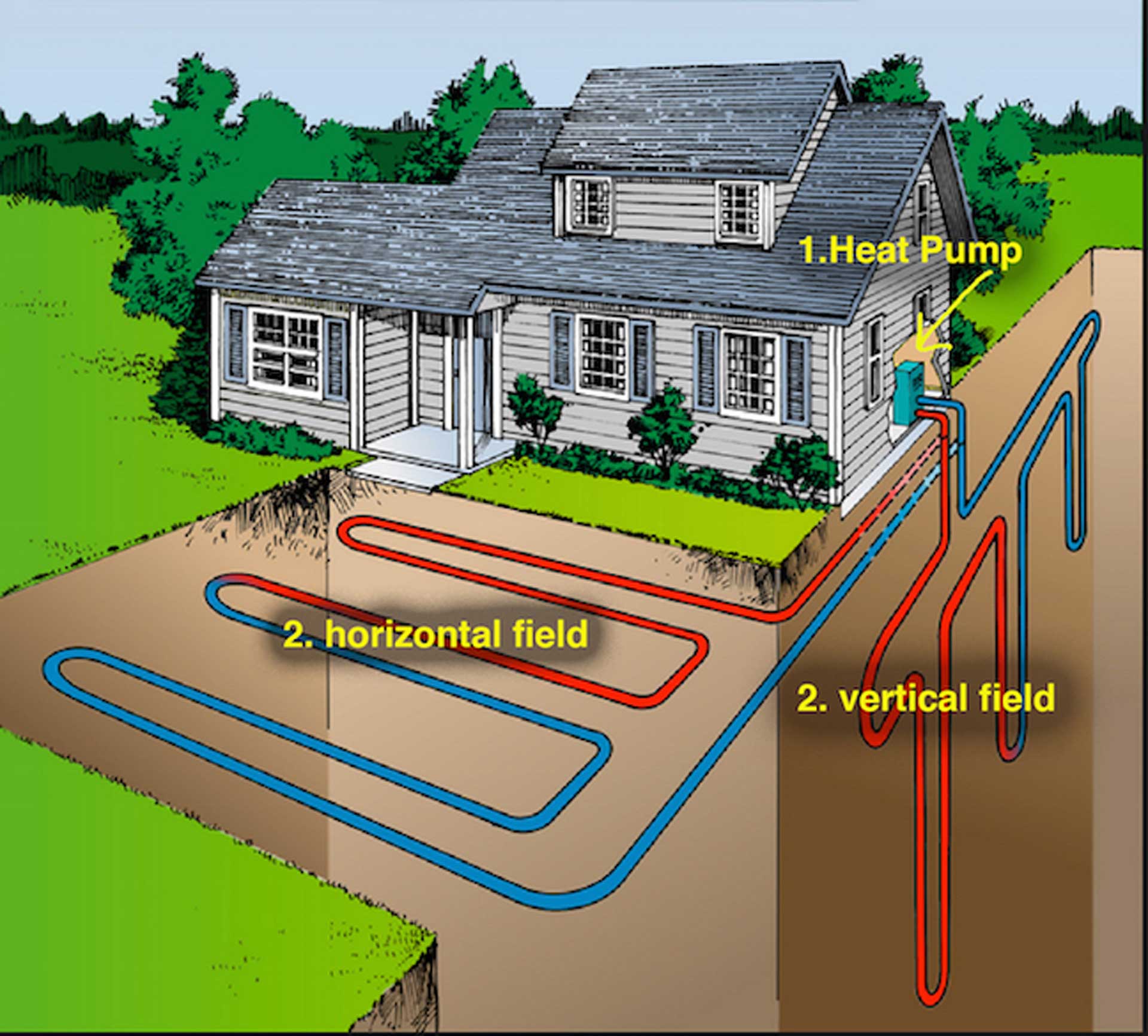Geothermal heating and cooling systems have become increasingly popular in recent years. And no wonder. They’re an eco-friendly, renewable, and cost-effective alternative to traditional HVAC systems.
Traditional systems convert outdoor area to warm and cool your home. But exterior temperatures can swing from one extreme to another, putting stress on equipment and causing efficiency to take a hit.
Geothermal ground loops, on the other hand, utilize a heat pump, extensive ductwork, and a system of submerged pipes to tap into the earth’s natural – and consistent – heat supply.
Seasonal temperatures can range from summer’s sweltering heat to sub-zero chills in the winter. Through it all, however, the temperature remains relatively steady just a few feet below the earth’s surface.
In the winter, these geothermal temps are warmer than the air above ground. In the summer, they’re cooler.
Using a heat exchanger, geothermal heat pumps can be used to alternately heat and cool residential and commercial properties. They do so by pumping warm air from an exchanger indoors during the colder months, and simply reversing the process when summer arrives.
It’s constant, it’s cost-effective, and because of the submerged piping, it’s incredibly low-maintenance.
Geothermal heat pumps come in closed loop and open loop configurations. Closed loop systems recirculate a water/refrigerant mixture to heat and cool your property. Open loop systems use well water as their source of heat exchange.
Additionally, there are three main varieties of closed loop systems:
- Horizontal – Common in new homes and spacious commercial properties, horizontal loops are utilized for situations in which space is not an issue. Economical and efficient, looped piping is housed in multiple 6-10 foot deep trenches.
- Vertical – More expensive than horizontal systems, vertical loops are also considered more viable in the long run as they require less piping for heat exchange. Holes, 150-400 feet deep, are drilled at 20-foot intervals. Piping is placed into these holes and connected via a u-bend fitting, forming a loop.
- Pond/Lake – For property owners who have access to a body of water with a depth of at least 8 feet, pond or lake loops can be an incredibly cost-effective option. Slinky coils of pipe are lowered into the pond on a skid, accompanied by a heat exchanger. A trench is then dug, leading from the property to the sunken coil in the pond, closing the loop.
It all sounds expensive, doesn’t it?
Unlike the pipes used in geothermal systems, we won’t bother burying the lead. Upfront costs can be significant, and vary depending on property size, soil conditions, and the ease and amount of digging and drilling required.
On average, homeowners can expect a geothermal heat pump install to cost approximately 40% more than a traditional HVAC setup.
But here’s the silver lining.
Most experts tend to agree that the long-term savings a geothermal system ultimately yields far outweigh initial expenses.
Consider the following:
- A geothermal system’s indoor components have a shelf life of approximately 25 years, compared with 15 or fewer for conventional HVAC systems. Ground loops – the coils that tap into the earth’s natural heat stores – can last for up to 50 years!
- Because geothermal heat pumps are submerged, and require fewer moving parts, they are incredibly low-maintenance.
- All told, geothermal heating pumps have been shown to reduce homeowner utility bills by up to 60%.
And because geothermal heating and cooling is considered to be better for the environment, a number of incentives are provided by government agencies to adopt and/or retrofit.
In fact, homeowners who order a geothermal heat pump install prior to Dec. 31, 2019 can receive a 30% federal tax credit. (That credit falls to 26% in 2020 and 22% in 2021.) Additionally, the state of Maryland offers Clean Energy Grant incentives, making the decision to make the switch even more appealing.
If a geothermal heat pump install is in your future, Easterday-Wilson can help. Our team specializes in drilling and installing both closed and open loop systems, and we work with HVAC contractors to ensure everything goes according to plan.
Call 301-831-5170 to learn more or schedule an evaluation online today.


